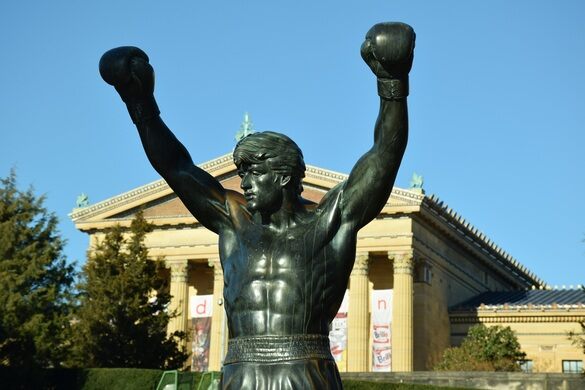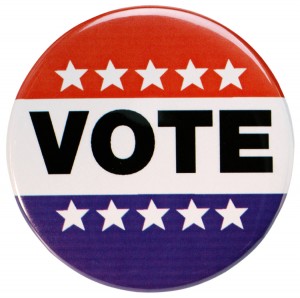This ugly and rancorous moment in our nation's history is pushing me to call to mind a moment from earlier in my career. The story I'm about to tell you took place more than a decade ago, in a school different than where I work now. I mark the moment as one of my great failures as an adult, but it humbled me and taught me a great deal. And it is a moment that allowed me to better understand courage and grace.
I regularly ate lunch at that time with a small group of teachers, and one of them was a friend who happened to be black. He was one of a very small number (perhaps five) of black teachers in my district, a district that had a teaching workforce of around 1,200 people. My friend was older than me by more than a decade, a father and husband. A veteran teacher. One of the funniest people I ever met. And one of the most talented teachers I've ever known.
I learned a lot from him.
He would occasionally call my attention to problems that a black man might lurking in the blind spot of a white man like me. His sense of humor was such that I often would laugh at his observations, but occasionally catch myself awkwardly realizing that what sounded humorous was also a very pointed observation at inequality. Perhaps the moment that best captures that sense for me was when he commented that he "always drives the speed limit" in that Township.
He wasn't talking about speeding.
Let me get to the difficult part.
One time we had a police officer from a local department visit our school. The officer was white. He was presenting to our students on a very important topic. He joined us for lunch after the presentation.The lunch was going well until, for reasons I'll never understand, the officer shared with us a racial joke. Why would a white guest tell a racist joke in the presence of a black man? I'll never quite know. He may have mistook the joke as something that was racial but not racist (if that's even a thing). But as the room silenced, he knew he had done something quite wrong, and he flubbered an explanation and apology as he painfully tried to pull back in the words he had said.
I didn't know how to react. So I turned to the teacher next to me and painfully tried to change the subject. It was my most cowardly moment as a grown up.
I was younger then, and not as experienced in how to traverse difficult topics. I wasn't too young to know wrong from right. I remain embarrassed at how small I came up in that moment.
My friend reported the incident to our principal. The principal immediately confirmed the details of the incident with me (the only thing I did right in this situation). The next day the officer was in our school, conferring with my friend. Apologizing. Listening.
Later on that next day I apologized to my friend. He told me he understood. He told me he knew how uncomfortable the moment had made everyone. He said that he had come to understand body language and mood well, and knew immediately how awful me and the other teachers felt.
His forgiveness of me was one of the most gracious things I've ever seen someone do. He remained my friend. When he learned I was leaving our school, he shared with me what he admired about me, and why it pained him to see me leave. He and I almost cried that day.
---
My friend died several years ago, succumbing to a vicious cancer. He kept the severity of his illness close to his chest. I saw him last about three months before he died. His first comment to me that night was on the weight I had lost, and he wanted to make sure I was losing it for good reasons. I had no idea how the cancer was ravaging his body at that point.
Did I mention that my friend was a band director? No. He was. And that exchange about my weight occurred the evening he directed his final concert.
---
I am now the age my friend was the day that venomous joke was uttered in our lunch room. Like my friend was then, I'm a father now. I've been teaching about as long now as my friend had been then. Like my friend I am well respected and established in the eyes of colleagues and students. I'm not as beloved, though (who could be?).
What humbles me now in these days of outrage in our nation is that I know no one would ever come into my lunch room and utter a joke that dehumanizes me. I know that if I get pulled over for speeding in that township, it's because I was speeding. I know that I'll never have the serious discussion with my son about what to do when one gets stopped by x that I'm sure my friend had with his sons. I learned a lot from my friend about what protections my race and status provide to me. And I better learned not to take it for granted.
My friend used to remind us in the lunchroom that our worst days in our school are better than so many teachers' best days in their own schools. Admitting this is a mark of courage. And grace.
---
In these fractured times, one can infer that I'm maligning police by sharing with you this story. If you think that's the case, you and I should talk some more (there's a comments feature here). It's possible to look at the moment I described here and know that behavior and character aren't the same thing. One mistake or misdeed doesn't make one evil. And one regrettable comment by an individual doesn't represent or reflect the group of which they're a part. People make mistakes, they're deserving of love and forgiveness.
My friend understood that and lived it. I miss him.










